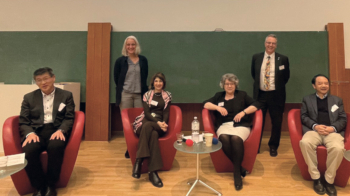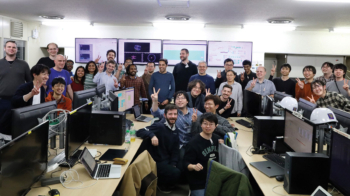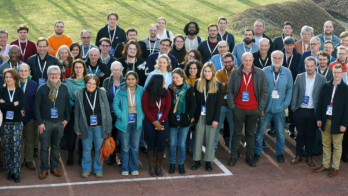Marking the emergence of Korea as a major player on the world physics scene, the Korea Detector Laboratory (KODEL) was established this year under director Sung Keun Park of Korea University, Seoul. Its aim is to carry out research and development for high-energy physics detectors and international high-energy physics programmes, and to provide the infrastructure for the ever-increasing scope of major international high-energy physics projects.
About 11 Korean universities have links with KODEL and participate in the research at Brookhaven, CERN, DESY (Hamburg), Fermilab, GSI (Darmstadt), and KEK (Japan).
A guest of honour at the KODEL opening ceremony was 1992 Physics Nobel prizewinner Georges Charpak of CERN. His lecture was televised throughout the country.

While at KODEL, Charpak stressed the importance of research and development for high-energy physics detectors in Korea, and Korea’s collaboration with CERN in the LHC Collider project.
At a news conference Charpak affirmed that present economic problems could be alleviated by higher investment in basic research to provide a solid foundation for future technological advancement.
Charpak also met with the Korean Prime Minister, the Minister of Science and Technology and the Minister of Information and Communication, and gave a talk to the Korean Physical Society entitled “Recent advances on gaseous detectors and their applications for medicine and biology”, a subject for which his enthusiasm never wavers.
KODEL produces prototypes of forward resistive plate chamber for the CMS detector at the LHC and is obtaining very encouraging results. It will be the main Korean laboratory for mass production of these units.





